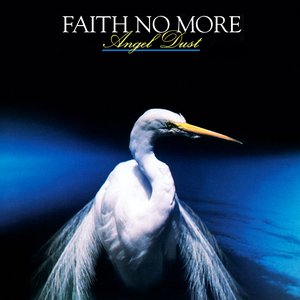Published on Jun 17, 2005
I want to make full use of this space to proclaim what I have
started believing over the past five years or so, and something
that has only become stronger over time:
Angel Dust is one of the most path-breaking rock records of
the nineties. It is also gravely overlooked, in terms of the
influence it has had on contemporary rock music.
Angel Dust was created when grunge was at its most
lucrative. It was the time when the “Seattle” sound was what
bullied the music scene, and every aspiring rock band wanted to
become a part of the cluster of “Seattle” bands that the early
nineties was so famous for. It was during that time that Faith No
More (FNM) came up with the funk-rap-rock-grunge package of
Angel Dust.
Rock music with keyboards and rap vocals, which is what grunge
has turned into, was not the same thirteen years ago. Though
rap-rock music had a mainstream presence, like that of the Red Hot
Chilli Peppers, Beastie Boys, etc., the more intense “hard rock”
facet of rock was still pretty much dominated by the rhythm guitar
and singers with baritone vocals who could scream really really
well.
Angel Dust is grunge and far beyond. Its aggressive rhythm
section is the most prominent feature of its sound — which is the
case with grunge music itself — and the FNM has a vocalist who can
not only hit bassy notes, but does an awful lot more. In its smart
grunge sensibility,
Angel Dust could also cleverly include rap, funk, and gothic
keyboard layers seamlessly. FNM did this earlier with
The Real Thing; but while
The Real Thing was aggressive and more commercial,
Angel Dust is darker and more intense, and a more difficult
record to have a damned instrument like the keyboard enhancing the
firing powers of its guitars rather than acting as a mellowing
agent trying to give the music a sense of melodiousness.
The most amazing part of this album is that it does not sound
“industrial” or badly synth-laden. It sounds like a pure hard-rock
record, and the keyboards and the funk vibes stand out too, but
without making the album sound too polished; the stinging rawness
is still maintained.
The album is crazy. Every song on the LP has each member
contending with each other to punch the listener black n’ blue. The
tunes are contorted and sound as if played by people on dangerous
adrenalin levels. No number proceeds the way it starts and ends the
way it proceeds. The record is, to put it plainly — and in a
manner that is befitting — fucked up; messed up badly in the
head.
Today’s funk-rock acts show anger of the type kids do when they
are denied something by their parents. Their angst gets so
unnerving at times that you feel like smacking them on the
buttocks, preferably with a whip on fire. FNM’s anger, on the other
hand, is unlike anything in today’s rock scene; it is the whip on
fire smacking into buttocks and anything else that gets in its
way.
Singer Mike Patton’s vocals are among the best in rock. He
switches between rap, baritone rock singing, mindlessly possessed
screaming, and cadaverously cold mutterings with the minimum effort
and maximum efficacy. On “RV,” Patton — presumably on a high dose
of meth — ends the song speaking with an air of cheesy nonchalance
“I think it’s time I had a talk with my kids / I’ll tell ’em what
my daddy told me / You ain’t never gonna amount to nothing,” and
the whip cracks hard. It cracks harder and more painfully on the
song about progenies “Everything’s Ruined,” which goes like this:
“We were like ink and paper / Knew arithmetic so well / We had to
multiply ourselves / Baby became a fat nickel so fast / Then came
puberty / But he made us proud / He made us rich / But how were we
to know he was counterfeit / Now everything’s ruined,” and on
“Kindergarten” (“Kindergarten / Born late / Will I graduate /
Drinking fountains are shorter than they used to be / the swings on
the playground don’t even fit me anymore”).
FNM wanted to let out its aggression by having fun with its
music, and hence sounds honestly angry. On the other hand, the
funk-rock emo buffoons on today’s modern rock charts want to be all
aggressive in letting out the anger they do not have in the first
place, and end up making fun of their music instead. FNM inspired a
music genre that is now putting itself to great shame.
Angel Dust is a must-buy rock album, recommended not for
rockers looking for self-pitying angst, but for bold adventurers
who are fearless enough to try rock music that’s an unpredictable
and frantic juggernaut.
